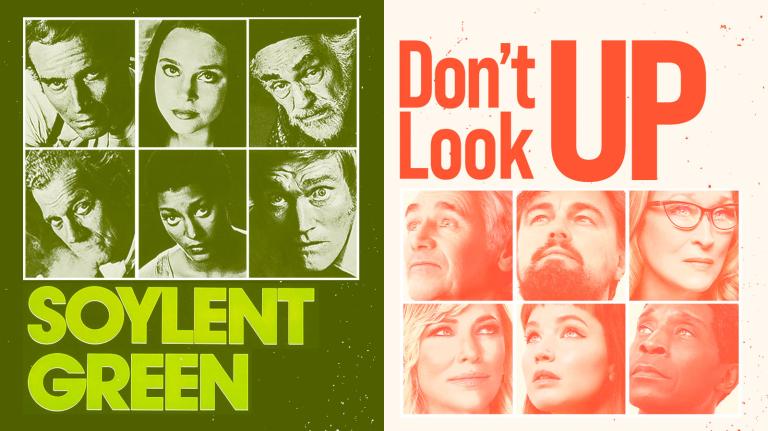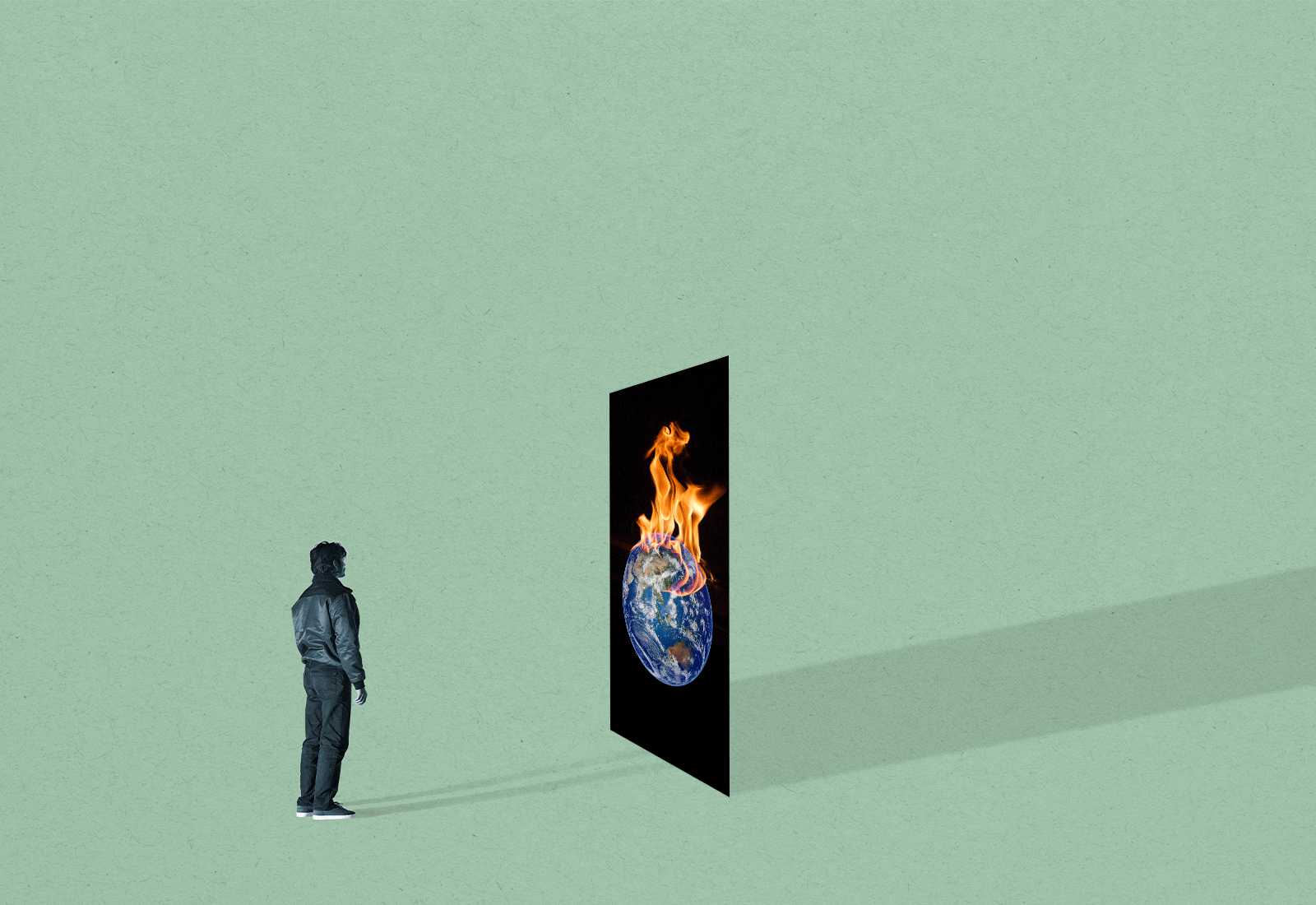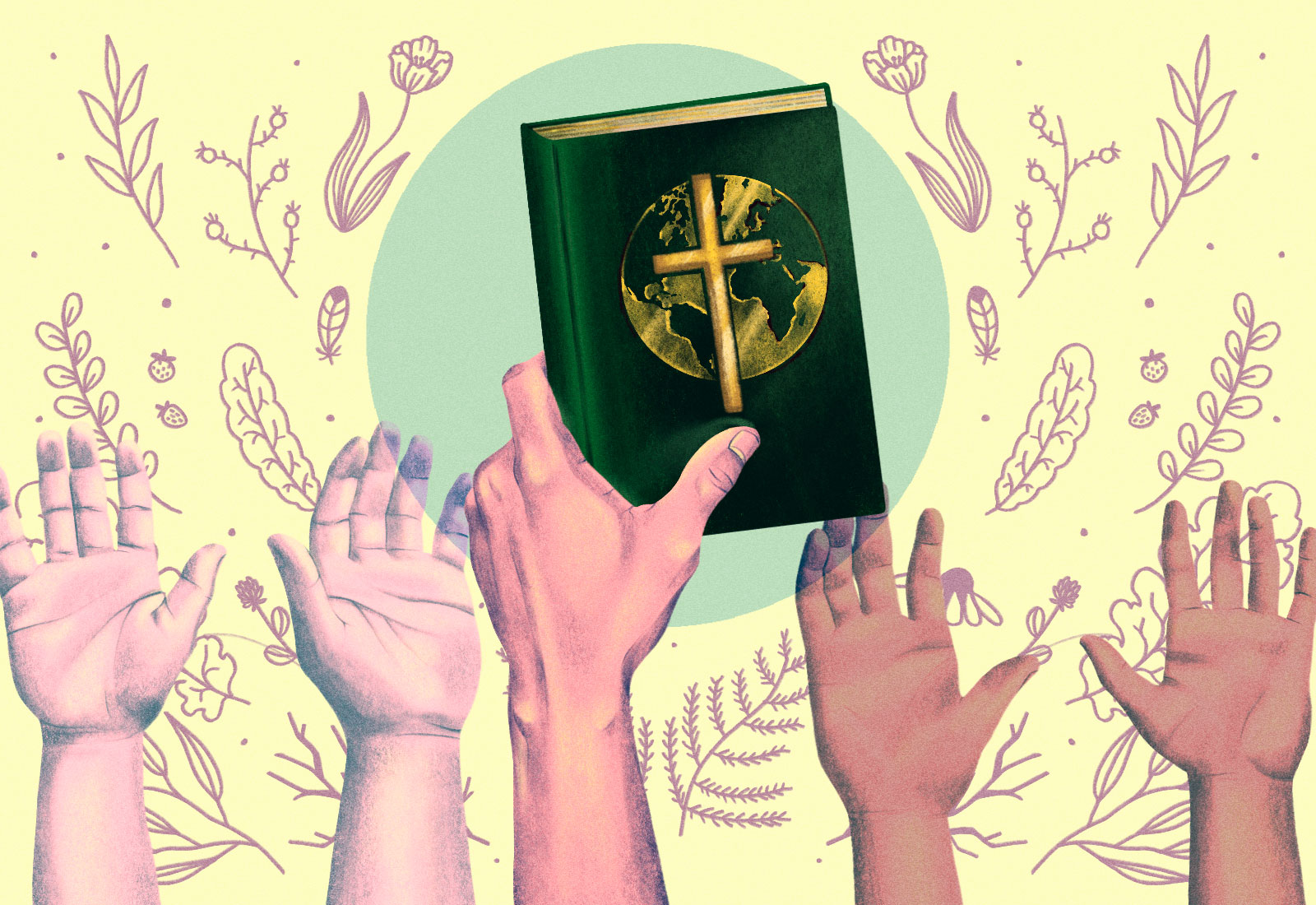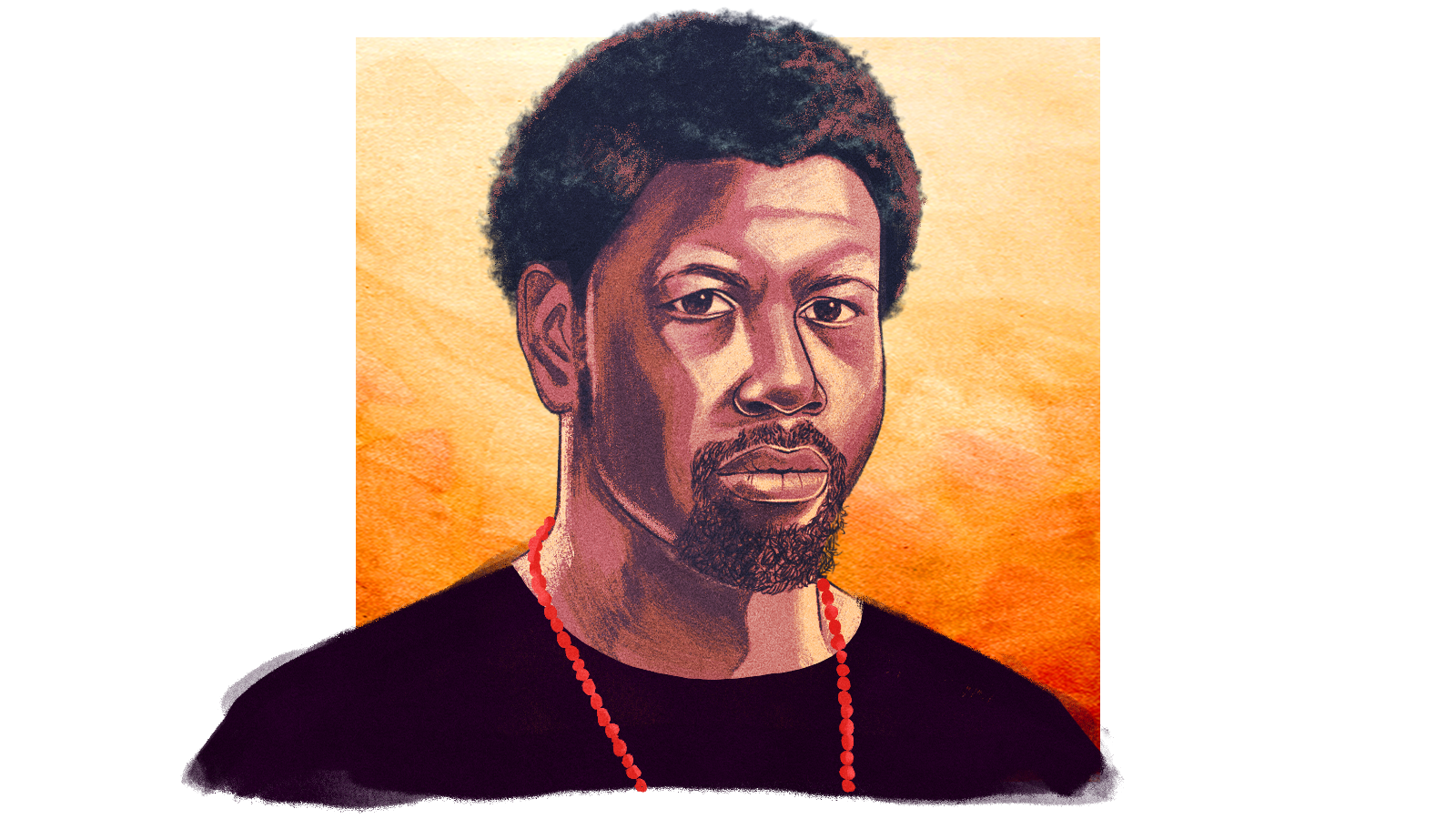There’s a part at the end of “Don’t Look Up,” last year’s wildly popular Netflix film about a comet hurtling toward Earth, when a group of people have dinner together on the eve of the planet’s destruction. As the television blares news about the impending impact and the walls begin to shake, a scientist, played by Leonardo DiCaprio, poses a wistful question to his wife, kids, friends, and colleagues: “We really did have everything, didn’t we?”
This scene stood out to Timothy Beal, a religious studies professor at Case Western Reserve University who teaches a class on religion and ecology. Faced with certain death-by-comet (a thinly veiled metaphor for climate change), the characters were left with neither optimism nor denial, but a heightened sense of gratitude. The scene lined up with a question Beal was already pondering: Most modern religions promote the idea that humanity will go on forever. Would we treat the planet better if we assumed that our species’ time on it is limited?
Beal expands upon this thought experiment in his new book, When Time Is Short: Finding Our Way in the Anthropocene, which came out in July. “This is not another ‘before it’s too late’ book,” he writes on the very first page. “This is a ‘what if it’s already too late?’ book. Maybe it’s not. But what if it is? What if we, along with many other plants and animals, have fifty years, or two hundred years, or maybe even several hundred more years left?”
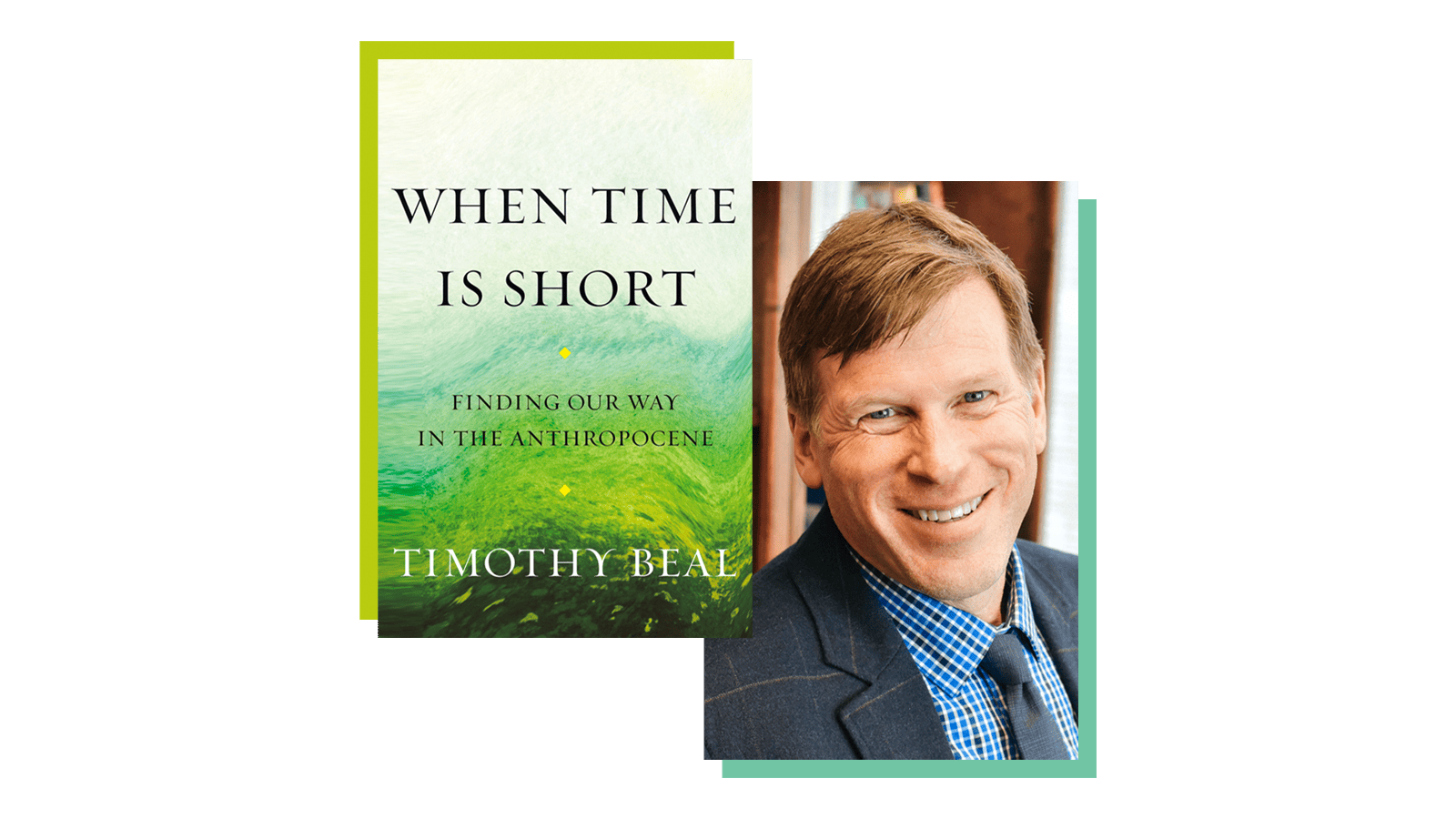
On first glance, this framing seems deeply antithetical to anyone who cares about the climate. After all, the scientific consensus is that it is still possible to mitigate the worst effects of climate change, assuming we take drastic and immediate action to reform our societies and economies. Wouldn’t convincing yourself that the world is ending lead people to do the opposite — to throw up their hands and go on with their lives as usual?
Beal argues the reverse. Reducing emissions and conserving natural resources are all things we should be doing anyway, he told Grist, but it’s hard to break out of the systems (say, capitalism) that got us into this mess in the first place. Accepting that human civilization is finite, he says, will challenge us to change our priorities, from worshiping extraction and growth to uplifting the most marginalized in society.
“Most people, when they find they have a year to live or two years to live, they don’t just become assholes,” Beal said.
Beal’s thesis draws heavily on the works of scholars like cultural anthropologist Ernest Becker, whose book The Denial of Death made the case that humans survive by refusing to accept their own mortality. The human-centric mythology of many religions, Beal writes, has convinced people that society will persist forever, no matter what damage we do to our habitat. Some Christians, for example, have used a passage from the biblical book of Genesis that instructs humans to “subdue” the Earth and have “dominion” over other living beings as proof that natural resources like oil and trees were made to be mined with abandon, without fear of the consequences.
But just as religion has helped get us into this mess, Beal believes it can get us out of it. He points out that other parts of the Bible put animals on equal footing with humans, and assign inherent value to the land itself, rather than just as a tool for humanity to exploit — an interpretation shared by some evangelical Christians who view “creation care” as a sacred duty. Beal also argues that spiritually minded people should embrace “dark green religion,” belief systems that emphasize the ways humans are interconnected with all other living things.
Again, this philosophical shift is intended to foster mercy, not hope. Beal envisions humanity adopting a “palliative” approach to the future, one modeled on end-of-life care administered to terminally ill patients. By positing that the end is coming (as a result of our consumerist ideals, no less), this palliative approach neatly shuts down policies that promise prosperity through infinite growth. Even climate solutions touted by Biden and the Democratic Party miss the mark in this case; he argues they frame climate action in the language of job creation and benefits to the economy.
Similarly, Beal criticizes the space-oriented ambitions of billionaires like Elon Musk and Jeff Bezos. He echoes thinkers like feminist scholar Donna Haraway and French philosopher Bruno Latour, who suggested in 2018 that addressing the multiple political and social crises we face today will require coming back “down to Earth” rather than retreating into escapist fantasies like creating a civilization on Mars.
Beal’s book might still rub a lot of people the wrong way — say, those who can’t accept his main premise (that it could be “too late” to stop climate change) or think that that worldview might hinder climate action. But for the more than 80 percent of Americans who say they believe in God (as well as those who may be spiritual but religiously unaffiliated), it’s possible his analysis will help them grapple with how their faith has shaped their views on the environment.
When Time Is Short is the latest addition to a rich body of work on what eco-theologian Michael Dowd termed a “post-doom mentality” or sustainability scholar Jem Bendell calls “deep adaptation” — the idea that if you accept what is inevitable, you can develop a true sense of empathy and a plan for how to respond positively. Pagan environmental activist John Halstead argued in his 2019 book, Another End of the World is Possible, that we need to abandon the obsessive focus on growth and capitalism that has driven us to the brink of collapse. (A 2021 book by the same name, written by a trio of Belgian ecologists and environmental advocates, calls this approach “collapsing well”).
But where Beal’s expertise as a Bible scholar shines is in his analysis of scripture to assert that early Christians were deeply connected to the Earth, and that modern-day interpretations are often at odds with the original message of harmony and respect for nature. He writes that the Old Testament creation story about Adam being crafted from earth — shared by both Jews and Christians — has ancient roots; even the name “Adam” comes from the Hebrew word “ha’adamah,” meaning humus or ground. The human, therefore, is “divinely inspired dust,” a reminder to believers that to dust they shall return.
For better or for worse, Beal’s message comes at a critical time. Climate anxiety is rising; as reports of droughts, fires, and floods dominate the news, climate change is no longer an abstract concept for many people, but a very real and present threat. At the same time, politicians and corporations don’t seem seriously interested in either stopping the crisis from worsening or mitigating its effects; the chances of actually limiting warming to 1.5 degrees Celsius (about 2.7 degrees Fahrenheit), as outlined in the Paris Agreement, are now essentially nil. In one study from last year, 56 percent of teens and young adults said they believed that “humanity is doomed.”
Beal doesn’t try to downplay these realities or comfort readers with a message that it will all be okay. “I don’t believe that we will sufficiently decelerate let alone reverse the great anthropogenic acceleration in which we find ourselves,” he writes in the book, “though I’d be very happy to discover otherwise.”
Once we’ve grieved for what we will lose, Beal writes, we can begin the work of doing something with the short time we have left. Given that reality, though, he acknowledges that not everyone may grieve the same way. Beal’s book was written before Don’t Look Up came out, but it references another disaster movie — Lars von Trier’s 2011 film “Melancholia,” about two sisters who struggle to cope in the days before a rogue planet collides with the Earth. While one sister is “paralyzed by depression and anxiety,” the other “gains a new sense of clear-minded peace and composure.” Religion, he argues, can provide a framework for action to alleviate unnecessary suffering as the world collapses around us.
“It’s about becoming disoriented, about realizing your smallness,” Beal said. Accepting that we’re not important, he suggests, is the most important thing we can do.
